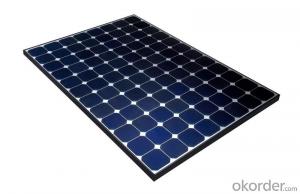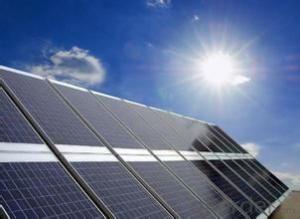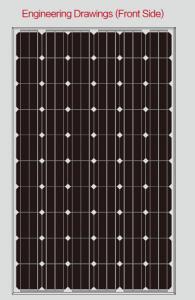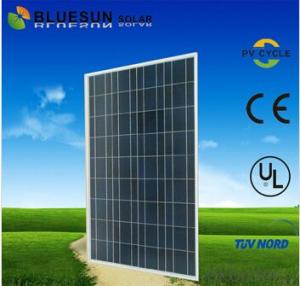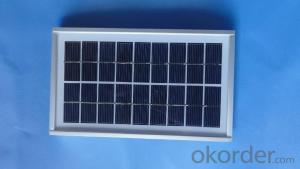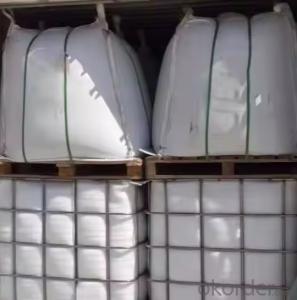Poly Solar Panel 320W B Grade with Cheapest Price
- Loading Port:
- Shanghai
- Payment Terms:
- TT OR LC
- Min Order Qty:
- 500 watt
- Supply Capability:
- 10000 watt/month
OKorder Service Pledge
OKorder Financial Service
You Might Also Like
Item specifice
Poly Solar Panel 320W B Grade with Cheapest Price
Product description
A solar cell, or photovoltaic cell (in very early days also termed "solar battery"[1] – a denotation which nowadays has a totally different meaning, see here), is an electrical device that converts the energy of lightdirectly into electricity by the photovoltaic effect, which is a physical and chemical phenomenon.
A solar cell, or photovoltaic cell (in very early days also termed "solar battery"[1] – a denotation which nowadays has a totally different meaning, see here), is an electrical device that converts the energy of lightdirectly into electricity by the photovoltaic effect.
In contrast, a solar thermal collector supplies heat by absorbing sunlight, for the purpose of either direct heating or indirect electrical power generation from heat. A "photoelectrolytic cell" (photoelectrochemical cell), on the other hand, refers either to a type of photovoltaic cell (like that developed by Edmond Becquerel and modern dye-sensitized solar cells), or to a device that splits water directly into hydrogen and oxygen using only solar illumination.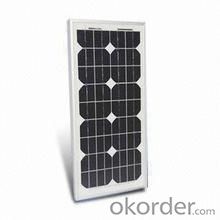
Application
Business
Home
Industry
Large project
Feature
1. A grade high efficiency solar cells.
2.TUV/UL/CE/CEC etc
3.Fast shippment
4.25 years warranty
5.OEM/ODM
Packaging
28pcs into one carton
Shipping
Material in stock can be produced (procedure 5-20days) right away after pre-payment confirmation. COSCO Mearsk MSCship to worldwide for safe shipping, don't worry about package damage or loss. It takes about 15-40 days to worldwide, Please note us your contact details include your phone number for easy contacting from shipping company officer.
- Q:How do solar panels affect the property's energy management strategy?
- Solar panels can significantly impact a property's energy management strategy by providing renewable and clean energy. By harnessing the power of the sun, solar panels can reduce dependency on traditional energy sources, lower electricity costs, and promote sustainability. The excess energy generated by solar panels can be stored or sold back to the grid, further optimizing energy management. Additionally, solar panels can enhance a property's overall value and reputation, making it more attractive to environmentally conscious consumers.
- Q:I would like a list of the solar companies expanding or doing hiring or a good list in general. I know some are expanding. Best answer gets all the points
- Leading vertically-integrated PV company. Manufactures top-quality Poly-Si/Mono-Si modules in India. The company distributes/provides solar-power systems services worldwide. USAManufacturer and developer of high-performance silicon solar cells. Their proprietary Bright Point technology utilizes impurity-enriched silicon to efficiently convert the sun’s power into electricity. Suniva develops, manufactures and markets high-efficiency silicon photovoltaic (PV) cells. Suniva's focus is solely on silicon PV cell technology and manufacturing and does not engage in any of the downstream integration or manufacturing of modules or products which use its cells.
- Q:I'm doing a science fair experiment with a tiny two-inch solar panel that only gives off like .5 volts of energy, but I need to know how many volts an average sized solar panel (like one you'd get to run your house) would produce. And how many panels do people usually get?
- You should read up on the different electrical units. You say .5 volts of energy, but this makes little sense. Energy is measured in Joules. Power in Watts. Solar panels will produce different voltages and currents, depending on the amount and angle of sunlight hitting them. Power = volts * amps. Before installing solar panels a home owner should do an energy audit to find out how much power they currently use - and how much that could be reduced with some easy changes. Solar panels are expensive, so it makes sense to reduce the amount that you need to install. In some places you can sell extra power back to your utility - so having extra panels might give you some small amount of money back - but this is rarely enough to justify the cost of the extra panels. I put 28 panels on my house (see picture in source URL). My utility has tiered pricing for electricity (first few kWh each month are cheap, but price for extra ones goes up in stages). My panels keep me from having to pay the higher rates.
- Q:who has solar panels on their home and are they worth it
- Depends where you live. Solar hot water is good for anywhere that doesn't get hard freezes, and will also work (slightly different technology) in colder areas, but will take longer to pay back. Hawaii probably has the best payback for solar water heaters of any state.
- Q:I'm re-doing my roof. Is it workable?Can I get a government grant or something to put solar panels on my roof?I know they did something like that for windows.
- solar panels are only about 20% or so efficient right now but you get great tax break in the US --- mostly.. wish you well... ps not that cheap but most companies installing these systems will supply with all grant papers for free.
- Q:I want to replace my electricity with solar and wind. I live just right outside the city, the roof about 000 square feet. How many windmills/solar panels would it take to get me off the power grid?
- I live in the Southwest where the sun shines almost every day. I got a quote for Solar system to produce about enough to cover my annual usage. My annual average electrical usage costs about $2300, or about $90/MO. The system costs around $30,000 but I can get rebates and some of your tax dollars in subsidies to bring my cost down to under $20,000. I can borrow $20,000 for 3 years at 7% and pay $95/MO, so in 3 years I will have the system paid for. As you can see, I don't start Saving any money for a long time. Maybe the rates will go up in later years which will help, but My friends that have solar systems tell me things like controllers go bad over time and they cost like $3000. Will it ever pay for itself? Maybe. Please note. This still does not get me off the grid. This system will not support things like an electric stove, air conditioning, Pool pump running, etc. so I still need the grid for when these operate and my usage peaks. If I installed a system that would totally support everything 24/7 the cost would be astronomical. If you live in the east, midwest, or NW where you have cloudy days, your economic calculations will be much less favorable I would think, unless your power costs are much higher than mine..
- Q:How are solar panels installed?
- Solar panels are typically installed on rooftops or open spaces using metal frames or mounting brackets. The process involves anchoring the panels securely, connecting them in a series or parallel configuration, and wiring them to an inverter that converts the DC electricity generated by the panels into usable AC electricity. Additionally, a solar panel installation may require making electrical connections to the building's electrical system and installing a net meter to measure the energy produced and consumed.
- Q:Can solar panels be used for powering public transportation?
- Yes, solar panels can be used for powering public transportation. Solar energy can be harnessed through solar panels and converted into electricity, which can then be used to power electric buses, trains, trams, and other forms of public transportation. This helps reduce dependence on fossil fuels, lower greenhouse gas emissions, and promote sustainable and clean energy solutions for transportation systems.
- Q:How much energy can a solar panel produce in a day?
- The amount of energy a solar panel can produce in a day depends on various factors such as the size and efficiency of the panel, the location and angle of installation, weather conditions, and sunlight availability. On average, a typical solar panel can generate between 4 to 6 kilowatt-hours (kWh) of electricity per day. However, this can vary significantly, and larger, more efficient panels in optimal conditions can produce even more energy.
- Q:How do solar panels affect the insurance premiums of a home?
- Solar panels can potentially have a positive impact on home insurance premiums. While the initial installation cost of solar panels may increase the value of a home, they can also lower the risk of fire damage and reduce reliance on the grid. As a result, some insurance companies offer discounts or special policies for homes with solar panels, which may lead to lower insurance premiums in the long run. However, it is important to consult with individual insurance providers as policies can vary.
1. Manufacturer Overview |
|
|---|---|
| Location | |
| Year Established | |
| Annual Output Value | |
| Main Markets | |
| Company Certifications | |
2. Manufacturer Certificates |
|
|---|---|
| a) Certification Name | |
| Range | |
| Reference | |
| Validity Period | |
3. Manufacturer Capability |
|
|---|---|
| a)Trade Capacity | |
| Nearest Port | |
| Export Percentage | |
| No.of Employees in Trade Department | |
| Language Spoken: | |
| b)Factory Information | |
| Factory Size: | |
| No. of Production Lines | |
| Contract Manufacturing | |
| Product Price Range | |
Send your message to us
Poly Solar Panel 320W B Grade with Cheapest Price
- Loading Port:
- Shanghai
- Payment Terms:
- TT OR LC
- Min Order Qty:
- 500 watt
- Supply Capability:
- 10000 watt/month
OKorder Service Pledge
OKorder Financial Service
Similar products
New products
Hot products
Related keywords
